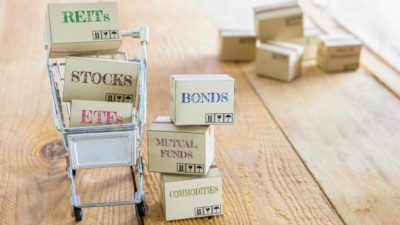It’s never too late to start investing in stocks and build a portfolio. Canada’s primary stock exchange is underperforming thus far in 2022, but it doesn’t mean we are in a bear market. The TSX must fall 20% to make it official. As of mid-August 2022, the year-to-date loss is only 4.9%.
The suggestion to first-time investors is to keep it safe and simple. Warren Buffett, the GOAT (greatest of all time) of investing, said, “Never invest in a business you cannot understand.” If you follow his advice, you’re on the right track if the stocks in your starter kit are the Royal Bank of Canada (TSX:RY)(NYSE:RY) and BCE (TSX:BCE)(NYSE:BCE).
More Buffett advice is, “Don’t watch the market closely.” With RBC and BCE, you don’t have to because the former is Canada’s largest bank and the latter is the most dominant player in the telco industry. The Big Six Bank and 5G stock are not only for long-term investors but also beginners.
Both companies have the financial muscle to weather market storms and economic downturns. They are excellent passive income providers paying attractive dividends. Furthermore, their dividend track records are more than 100 years old.
Long-term hold
The RBC economics team warns that stronger-than-expected inflation continues to force central banks into aggressive action. The Bank of Canada will announce its next rate decision on September 7, 2022. While global price pressures appear to be easing and inflation is close to peaking, RBC analysts say it won’t slow significantly to the Fed’s target range without a weaker economy.
Earning passive income is important as ever because inflation erodes purchasing power. RBC is trading at $128.45 per share (-1.71% year to date) and pays a 3.99% dividend yield.
The total return of 49,361%, or 13.3% compound annual growth rate (CAGR), in 49.7 years is enough justification to invest in this Big Bank stock. In fiscal 2021, RBC’s net income of $16 billion was 40.3% and 24.7% higher than in fiscal years 2020 and 2019, respectively.
Dividend machine
BCE needs no introduction as everyone knows that its telecom products and services are essential to people and businesses. The $59.6 billion company is a cash cow and dividend machine. The company’s average EBITDA growth rate has increased to 5.3% over the past 12 months, versus a 3-year EBITDA growth rate of 2.1%, as it large investments in 5G and fiber-to-the-home begin to payoff with high mobile phone and internet subscriber growth.
If you take a position today, the share price is $64.85 (+1.3% year to date), while the dividend yield is a hefty 5.71%. Like RBC, BCE is for keeps. The telco stock’s total return in 46.7 years is an impressive 77,674 (15.3% CAGR).
Mirko Bibic, President and CEO of BCE and Bell Canada, said, “The Bell team continues to deliver for all the stakeholders we serve.” While net earnings in Q2 2022 declined 10.9% versus Q2 2021, free cash flow (FCF) increased 7.1% year over year to $1.3 billion.
Reinvest the dividends
The average dividend yield of RBC and BCE is 4.85%. Assuming you allocate $5,000 to each stock, the pair will produce $121.25 in passive income every quarter. That amount isn’t bad for starters. If you don’t collect the dividends and instead reinvest them, the value of your investment should compound considerably over time.








